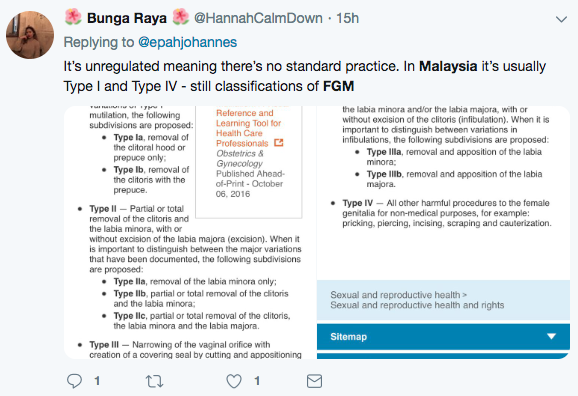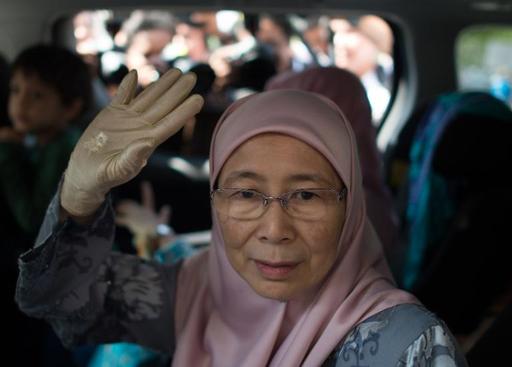Following criticism from local activist groups, as well as members of the international community at the United Nations Universal Periodic Review, regarding Malaysia’s continued practice of female genital mutilation (FGM), the country’s deputy prime minister, Wan Azizah Wan Ismail, has said that the practice is part of our country’s culture.
We’d like to remind you that as the Women, Family and Community Development Minister, Dr. Wan Azizah, who is also a medical doctor, is in charge of protecting women’s rights, health and safety. Lol.
Wan Azizah has said that her ministry will meet with health officials to discuss the practice, and whether there are any benefits or downsides to the procedure.
Current statistics estimate that as much as 93% of Muslim women in Malaysia have had Type I FGM, which sees the skin around the clitoris partially, or completely removed. The World Health Organization has stated that there are no health benefits to any version of the procedure.
However, officials representing Malaysia told the panel at the UPR meeting that such practices were “cultural obligations” for many women in the country, something that our Women’s Minister has doubled-down on herself:
“We are in discussions with the Health Ministry because so far, it is actually something that is cultural which we had since before, and this is one of the things they (the delegates) actually said.
“But we are not the same as Africa, all the mutilation (there). If it doesn’t give any benefits, then we should do something,” she told reporters at the Parliament lobby yesterday.

Many have come out to strongly condemn these statements made in an official capacity, including the National Human Rights Commission (Suhakam), who have called such terminology “misleading and unconvincing,” and say that the matter could further damage our country’s credibility on human rights.
Netizens were equally angered, with many taking the minister to task over her claims that it was “cultural,” with one woman referring to the practice’s prevalence as more of an “obsession” over women’s bodies than anything useful.










